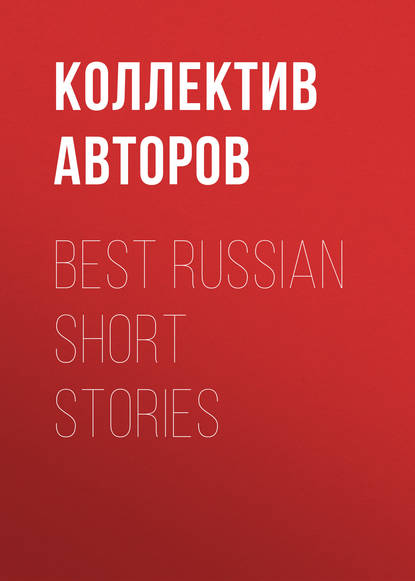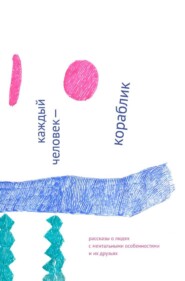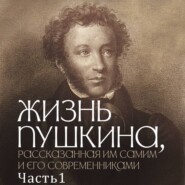По всем вопросам обращайтесь на: info@litportal.ru
(©) 2003-2025.
✖
Best Russian Short Stories
Настройки чтения
Размер шрифта
Высота строк
Поля
"And the youth went on his way at break of day – "
"Did he find the one whom he sought?"
"He is still seeking. Many countries, cities and men has he seen. He has come to know all the ways by land; he has traversed the stormy seas; he has searched the courses of the stars in heaven by which a pilgrim can direct his course in the limitless deserts. And each time that on his wearisome way an inviting fire lighted up the darkness before his eyes, his heart beat faster and hope crept into his soul. 'That is my father's hospitable house,' he thought.
"And when a hospitable host would greet the tired traveller and offer him the peace and blessing of his hearth, the youth would fall at his feet and say with emotion: 'I thank you, my father! Do you not recognise your son?'
"And many were prepared to take him as their son, for at that time children were frequently kidnapped. But after the first glow of enthusiasm, the youth would detect traces of imperfection, sometimes even of wickedness. Then he would begin to investigate and to test his host with questions concerning justice and injustice. And soon he would be driven forth again upon the cold wearisome way. More than once he said to himself: 'I will remain at this last hearth, I will preserve my last belief. It shall be the home of my father.'"
"Do you know, Socrates, perhaps that would have been the most sensible thing to do."
"So he thought sometimes. But the habit of investigating, the confused dream of a father, gave him no peace. Again and again he shook the dust from his feet; again and again he grasped his staff. Not a few stormy nights found him shelterless. Doesn't it seem to you that the fate of this youth resembles the fate of mankind?"
"Why?"
"Does not the race of man make trial of its childish belief and doubt it while seeking the unknown? Doesn't it fashion the form of its father in wood, stone, custom, and tradition? And then man finds the form imperfect, destroys it, and again goes on his wanderings in the desert of doubt. Always for the purpose of seeking something better – "
"Oh, you cunning sage, now I understand the purpose of your allegory! And I will tell you to your face that if only a ray of light were to penetrate this gloom, I would not put the Lord on trial with unnecessary questions – "
"Friend, the light is already shining," answered Socrates.
V
It seemed as if the words of the philosopher had taken effect. High up in the distance a beam of light penetrated a vapoury envelop and disappeared in the mountains. It was followed by a second and a third. There beyond the darkness luminous genii seemed to be hovering, and a great mystery seemed about to be revealed, as if the breath of life were blowing, as if some great ceremony were in process. But it was still very remote. The shades descended thicker and thicker; foggy clouds rolled into masses, separated, and chased one another endlessly, ceaselessly.
A blue light from a distant peak fell upon a deep ravine; the clouds rose and covered the heavens to the zenith.
The rays disappeared and withdrew to a greater and greater distance, as if fleeing from this vale of shades and horrors. Socrates stood and looked after them sadly. Elpidias peered up at the peak full of dread.
"Look, Socrates! What do you see there on the mountain?"
"Friend," answered; the philosopher, "let us investigate our situation. Since we are in motion, we must arrive somewhere, and since earthly existence must have a limit, I believe that this limit is to be found at the parting of two beginnings. In the struggle of light with darkness we attain the crown of our endeavours. Since the ability to think has not been taken from us, I believe that it is the will of the divine being who called our power of thinking into existence that we should investigate the goal of our endeavours ourselves. Therefore, Elpidias, let us in dignified manner go to meet the dawn that lies beyond those clouds."
"Oh, my friend! If that is the dawn, I would rather the long cheerless night had endured forever, for it was quiet and peaceful. Don't you think our time passed tolerably well in instructive converse? And now my soul trembles before the tempest drawing nigh. Say what you will, but there before us are no ordinary shades of the dead night."
Zeus hurled a bolt into the bottomless gulf.
Ctesippus looked up to the peak, and his soul was frozen with horror. Huge sombre figures of the Olympian gods crowded on the mountain in a circle. A last ray shot through the region of clouds and mists, and died away like a faint memory. A storm was approaching now, and the powers of night were once more in the ascendant. Dark figures covered the heavens. In the centre Ctesippus could discern the all-powerful son of Cronos surrounded by a halo. The sombre figures of the older gods encircled him in wrathful excitement. Like flocks of birds winging their way in the twilight, like eddies of dust driven by a hurricane, like autumn leaves lashed by Boreas, numerous minor gods hovered in long clouds and occupied the spaces.
When the clouds gradually lifted from the peak and sent down dismal horror to embrace the earth, Ctesippus fell upon his knees. Later, he admitted that in this dreadful moment he forgot all his master's deductions and conclusions. His courage failed him; and terror took possession of his soul.
He merely listened.
Two voices resounded there where before had been silence, the one the mighty and threatening voice of the Godhead, the other the weak voice of a mortal which the wind carried from the mountain slope to the spot where Ctesippus had left Socrates.
"Are you," thus spake the voice from the clouds, "are you the blasphemous Socrates who strives with the gods of heaven and earth? Once there were none so joyous, so immortal, as we. Now, for long we have passed our days in darkness because of the unbelief and doubt that have come upon earth. Never has the mist closed in on us so heavily as since the time your voice resounded in Athens, the city we once so dearly loved. Why did you not follow the commands of your father, Sophroniscus? The good man permitted himself a few little sins, especially in his youth, yet by way of recompense, we frequently enjoyed the smell of his offerings – "
"Stay, son of Cronos, and solve my doubts! Do I understand that you prefer cowardly hypocrisy to searchings for the truth?"
At this question the crags trembled with the shock of a thundering peal. The first breath of the tempest scattered in the distant gorges. But the mountains still trembled, for he who was enthroned upon them still trembled. And in the anxious quiet of the night only distant sighs could be heard.
In the very bowels of the earth the chained Titans seemed to be groaning under the blow of the son of Cronos.
"Where are you now, you impious questioner?" suddenly came the mocking voice of the Olympian.
"I am here, son of Cronos, on the same spot. Nothing but your answer can move me from it. I am waiting."
Thunder bellowed in the clouds like a wild animal amazed at the daring of a Lybian tamer's fearless approach. At the end of a few moments the Voice again rolled over the spaces:
"Son of Sophroniscus! Is it not enough that you bred so much scepticism on earth that the clouds of your doubt reached even to Olympus? Indeed, many a time when you were carrying on your discourse in the market-places or in the academies or on the promenades, it seemed to me as if you had already destroyed all the altars on earth, and the dust were rising from them up to us here on the mountain. Even that is not enough! Here before my very face you will not recognise the power of the immortals – "
"Zeus, thou art wrathful. Tell me, who gave me the 'Daemon' which spoke to my soul throughout my life and forced me to seek the truth without resting?"
Mysterious silence reigned in the clouds.
"Was it not you? You are silent? Then I will investigate the matter. Either this divine beginning emanates from you or from some one else. If from you, I bring it to you as an offering. I offer you the ripe fruit of my life, the flame of the spark of your own kindling! See, son of Cronos, I preserved my gift; in my deepest heart grew the seed that you sowed. It is the very fire of my soul. It burned in those crises when with my own hand I tore the thread of life. Why will you not accept it? Would you have me regard you as a poor master whose age prevents him from seeing that his own pupil obediently follows out his commands? Who are you that would command me to stifle the flame that has illuminated my whole life, ever since it was penetrated by the first ray of sacred thought? The sun says not to the stars: 'Be extinguished that I may rise.' The sun rises and the weak glimmer of the stars is quenched by its far, far stronger light. The day says not to the torch: 'Be extinguished; you interfere with me.' The day breaks, and the torch smokes, but no longer shines. The divinity that I am questing is not you who are afraid of doubt. That divinity is like the day, like the sun, and shines without extinguishing other lights. The god I seek is the god who would say to me: 'Wanderer, give me your torch, you no longer need it, for I am the source of all light. Searcher for truth, set upon my altar the little gift of your doubt, because in me is its solution.' If you are that god, harken to my questions. No one kills his own child, and my doubts are a branch of the eternal spirit whose name is truth."
Round about, the fires of heaven tore the dark clouds, and out of the howling storm again resounded the powerful voice:
"Whither did your doubts tend, you arrogant sage, who renounce humility, the most beautiful adornment of earthly virtues? You abandoned the friendly shelter of credulous simplicity to wander in the desert of doubt. You have seen this dead space from which the living gods have departed. Will you traverse it, you insignificant worm, who crawl in the dust of your pitiful profanation of the gods? Will you vivify the world? Will you conceive the unknown divinity to whom you do not dare to pray? You miserable digger of dung, soiled by the smut of ruined altars, are you perchance the architect who shall build the new temple? Upon what do you base your hopes, you who disavow the old gods and have no new gods to take their place? The eternal night of doubts unsolved, the dead desert, deprived of the living spirit —this is your world, you pitiful worm, who gnawed at the living belief which was a refuge for simple hearts, who converted the world into a dead chaos. Now, then, where are you, you insignificant, blasphemous sage?"
Nothing was heard but the mighty storm roaring through the spaces. Then the thunder died away, the wind folded its pinions, and torrents of rain streamed through the darkness, like incessant floods of tears which threatened to devour the earth and drown it in a deluge of unquenchable grief.
It seemed to Ctesippus that the master was overcome, and that the fearless, restless, questioning voice had been silenced forever. But a few moments later it issued again from the same spot.
"Your words, son of Cronos, hit the mark better than your thunderbolts. The thoughts you have cast into my terrified soul have haunted me often, and it has sometimes seemed as if my heart would break under the burden of their unendurable anguish. Yes, I abandoned the friendly shelter of credulous simplicity. Yes, I have seen the spaces from which the living gods have departed enveloped in the night of eternal doubt. But I walked without fear, for my 'Daemon' lighted the way, the divine beginning of all life. Let us investigate the question. Are not offerings of incense burnt on your altars in the name of Him who gives life? You are stealing what belongs to another! Not you, but that other, is served by credulous simplicity. Yes, you are right, I am no architect. I am not the builder of a new temple. Not to me was it given to raise from the earth to the heavens the glorious structure of the coming faith. I am one who digs dung, soiled by the smut of destruction. But my conscience tells me, son of Cronos, that the work of one who digs dung is also necessary for the future temple. When the time comes for the proud and stately edifice to stand on the purified place, and for the living divinity of the new belief to erect his throne upon it, I, the modest digger of dung, will go to him and say: 'Here am I who restlessly crawled in the dust of disavowal. When surrounded by fog and soot, I had no time to raise my eyes from the ground; my head had only a vague conception of the future building. Will you reject me, you just one, Just, and True, and Great?'"
Silence and astonishment reigned in the spaces. Then Socrates raised his voice, and continued:
"The sunbeam falls upon the filthy puddle, and light vapour, leaving heavy mud behind, rises to the sun, melts, and dissolves in the ether. With your sunbeam you touched my dust-laden soul and it aspired to you, Unknown One, whose name is mystery! I sought for you, because you are Truth; I strove to attain to you, because you are Justice; I loved you, because you are Love; I died for you, because you are the Source of Life. Will you reject me, O Unknown? My torturing doubts, my passionate search for truth, my difficult life, my voluntary death – accept them as a bloodless offering, as a prayer, as a sigh! Absorb them as the immeasurable ether absorbs the evaporating mists! Take them, you whose name I do not know, let not the ghosts of the night I have traversed bar the way to you, to eternal light! Give way, you shades who dim the light of the dawn! I tell you, gods of my people, you are unjust, and where there is no justice there can be no truth, but only phantoms, creations of a dream. To this conclusion have I come, I, Socrates, who sought to fathom all things. Rise, dead mists, I go my way to Him whom I have sought all my life long!"
The thunder burst again – a short, abrupt peal, as if the egis had fallen from the weakened hand of the thunderer. Storm-voices trembled from the mountains, sounding dully in the gorges, and died away in the clefts. In their place resounded other, marvellous tones.
When Ctesippus looked up in astonishment, a spectacle presented itself such as no mortal eyes had ever seen.
The night vanished. The clouds lifted, and godly figures floated in the azure like golden ornaments on the hem of a festive robe. Heroic forms glimmered over the remote crags and ravines, and Elpidias, whose little figure was seen standing at the edge of a cleft in the rocks, stretched his hands toward them, as if beseeching the vanishing gods for a solution of his fate.
A mountain-peak now stood out clearly above the mysterious mist, gleaming like a torch over dark blue valleys. The son of Cronos, the thunderer, was no longer enthroned upon it, and the other Olympians too were gone.
Socrates stood alone in the light of the sun under the high heavens.
Ctesippus was distinctly conscious of the pulse-beat of a mysterious life quivering throughout nature, stirring even the tiniest blade of grass.
A breath seemed to be stirring the balmy air, a voice to be sounding in wonderful harmony, an invisible tread to be heard – the tread of the radiant Dawn!
And on the illumined peak a man still stood, stretching out his arms in mute ecstasy, moved by a mighty impulse.
A moment, and all disappeared, and the light of an ordinary day shone upon the awakened soul of Ctesippus. It was like dismal twilight after the revelation of nature that had blown upon him the breath of an unknown life.

















